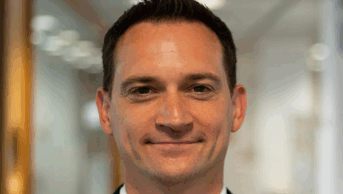
Shutterstock.com
GPs should direct patients to community pharmacies and other services when GP capacity is breached, the British Medical Association (BMA) has advised in an open letter to the health secretary.
The letter, sent to Wes Streeting on 17 October 2025, followed a letter sent to GPs by Becky Haines, a member of the BMA’s national GP committee, and Paul Evans, a member of the BMA’s UK council, telling them not to direct patients to Pharmacy First.
“Pharmacy First is a scheme that by design has significant potential to undermine us and, frankly, [NHS England] want us to get patients used to being seen by less-skilled people, to further enable the steady downgrading of patient expectations,” the letter from Haines and Evans said.
However, on 10 October 2025, The Times reported that BMA leaders said the letter was a “back-office cock-up” sent in error.
Following the publication of Haines’ and Evans’ letter, pharmacy leaders from the Royal Pharmaceutical Society, Community Pharmacy England, Company Chemists’ Association, Independent Pharmacies Association (IPA) and the National Pharmacy Association united in a joint letter to The Times condemning the “extremely troubling” rhetoric used.
In its letter sent on 17 October 2025, the BMA said: “The BMA will continue to remind and advise practices that when safe capacity is breached on any given day, patients should be appropriately signposted to NHS 111, urgent care centres, walk-in centres and community pharmacies, in line with the BMA safe working guidance principles.”
Henry Gregg, chief executive of the NPA, commented: “GPs, like pharmacies, are under significant pressure due to the impact of increased patient volumes coupled with historic reductions to funding”.
“The only way in which the primary care system can manage these pressures and deliver good patient care is by working together.
“We want to work with our colleagues across primary care including general practice to improve neighbourhood services for patients and ensure all healthcare professionals — including expert community pharmacists and general practitioners — work collaboratively to serve their communities.”
Leyla Hannbeck, chief executive of the IPA, said community pharmacies were “equally under-resourced with safe capacity issues and breaches”.
“This is overlaid with over ten years of flat funding against a backdrop of rising costs such as practice overheads, the national minimum wage, national insurance, rents, rates etc.,” she added.
“Community pharmacy contractors have always taken a pragmatic and solution focussed approach and remain keen to work with GPs and government in achieving the ten-year plan alongside internal aspects, such as Pharmacy First, BP monitoring, the contraception service etc., to be of benefit to our patients and our communities.”
In August 2025, analysis carried out by The Pharmaceutical Journal revealed regional variation in GP referrals to Pharmacy First, with some pharmacists suggesting a lack of formal referrals left them unable to meet monthly thresholds for payment.
You may also be interested in

Four in ten patients cannot have pharmacy consultations added to their records

‘Concerning’ call from doctors to ‘reallocate’ Pharmacy First funding to GPs
